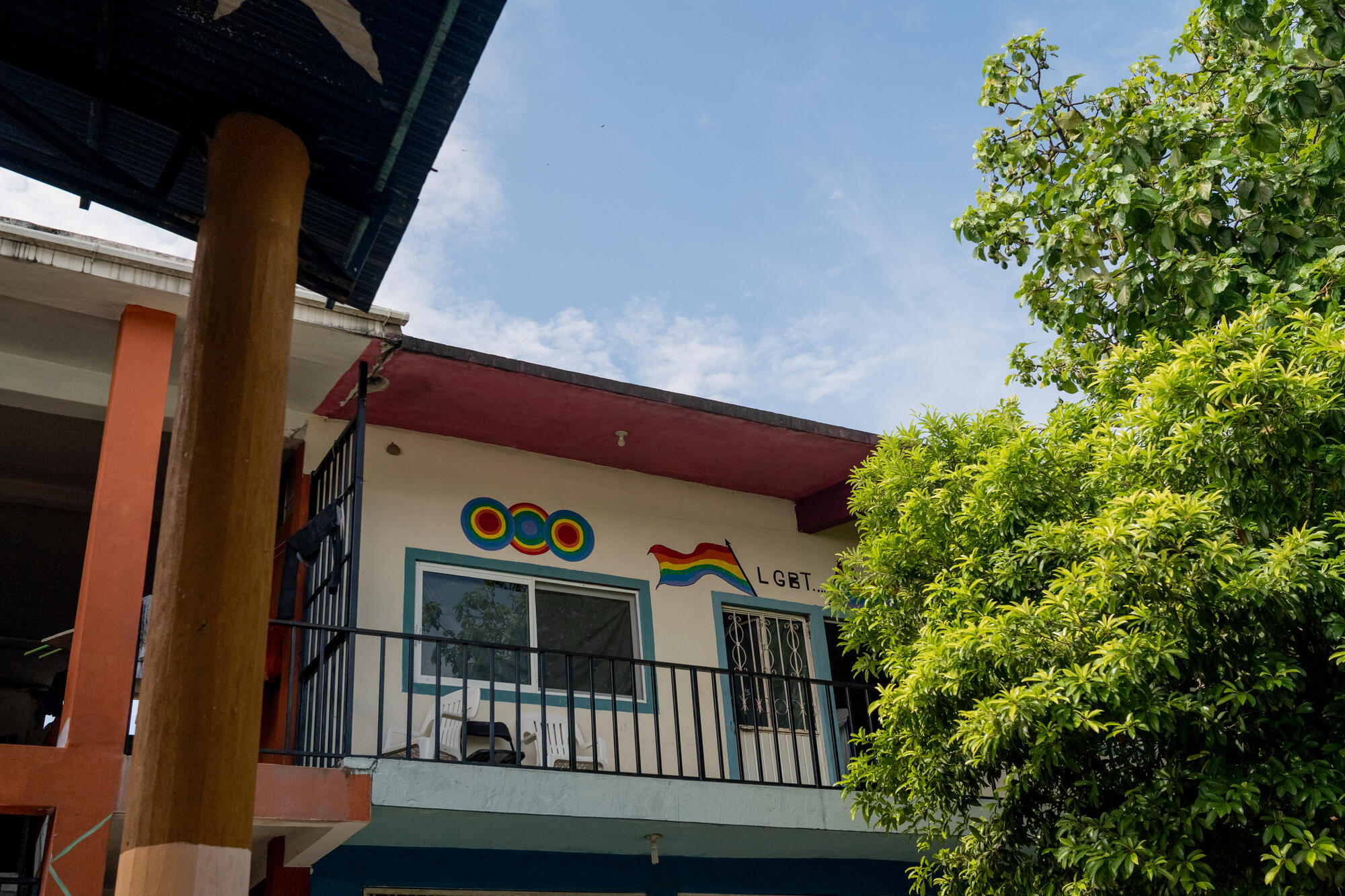
Being LGBTQ+ in Latin America: Four stories of bravery and resilience
Many countries in Latin America remain dangerous places for LGBTQ+ people. This Pride Month, meet four inspiring people who have fought to live in safety.

Many countries in Latin America remain dangerous places for LGBTQ+ people. This Pride Month, meet four inspiring people who have fought to live in safety.
June is Pride Month, a celebration of LGBTQ+ rights in the United States and around the world. The month commemorates the Stonewall Riots of 1969, when LGBTQ+ people protested police raids of gay bars in New York City and demanded justice and equal rights.
Despite the progress made over recent decades, there are still many places where LGBTQ+ communities face harassment and violence, simply because of their identities.
Latin American continues to be one of many places that is dangerous for LGBTQ+ communities. Many people have experienced violence from family members rejecting them or have been forced to leave their homes. LGBTQ+ people also experience gender-based violence and extortion at the hands of gangs and other armed groups that plague numerous countries in the region. Trans women are particularly vulnerable—across the region, the life expectancy for trans women is a mere 35 years.
For LGBTQ+ people throughout Latin America, finding safe spaces where they can freely be themselves, in a welcoming environment, is crucial. Below, meet four phenomenal human beings, who have escaped persecution to live freely somewhere new.
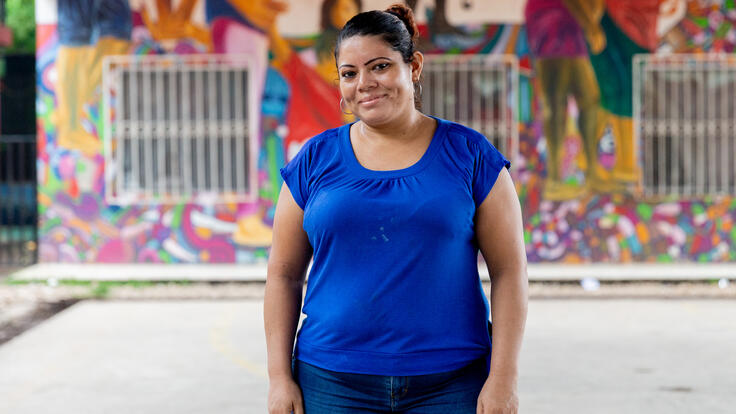
Ana is a 42-year-old single mother from Central America, who in March 2022 risked everything to protect her children—Bryan, 18, and Yeshua,15—who are part of the LGBTQ+ community.
“There’s a lot of machismo there, there’s violence…” Ana says about her home country. “They [the LGBTQ+ community] often commit suicide because they can’t be who they really are, because their own parents are ashamed…My sons’ father left us because of that, because he didn’t want a son like that. ”
The decision to leave wasn’t an easy one. At the last moment, Bryan told his mother he was afraid of the journey and wanted to stay . Reluctantly, and hoping they would be able to reunite soon, Ana and Yeshua embarked for Mexico without him. They arrived in a city just over the border with Guatemala, where they are trying to rebuild their lives.
“I love my sons,” says Ana. “God sent them to me like that, so I will love them as they are and I’m proud of who they are. And I support them wherever they want to go.
I love my sons. God sent them to me like that, so I will love them as they are and I’m proud of who they are.
Yeshua, who is an avid content creator on TikTok, wants to study to become a makeup artist and hairdresser—work that would have been impossible for him in their hometown, where he’d be bullied and ostracized.
“I’ve seen that there are lots of opportunities here in Mexico,” says Ana. “I feel good, relieved and happy—I just need Bryan to come to feel better.”
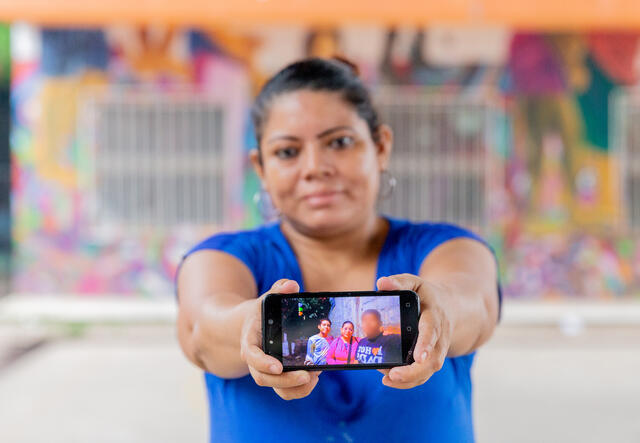
Ana first encountered the IRC at a shelter where we provide a variety of services, including psychosocial and financial support, where IRC psychologists help asylum seekers cope with trauma and hardship.
“To me, a safe place is somewhere my sons are not discriminated against—where they can develop as people and learn what they want.”
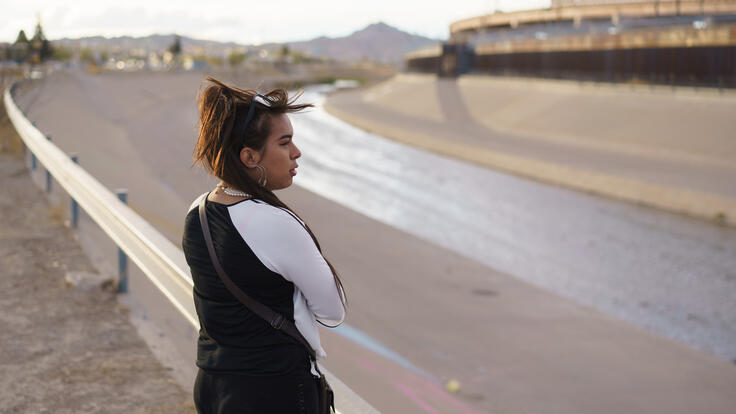
When she was 25 years old, Gianna left her hometown in Central America after experiencing discrimination for being a trans woman. She worked as a nurse with private clients—the public health system would not employ her due to her identity—but continued to experience discrimination and even received death threats from gangs. Gianna realized that her only chance was to claim asylum in the United States.
Unfortunately, Covid-19 left her stranded in Ciudad Juarez, at a “triage hotel” supported by the IRC and other organizations that provided food, and support services during the quarantine period. When the pandemic subsided, Gianna and other trans women stayed at shelters for asylum seekers but struggled to feel comfortable and safe.
Out of these experiences, something profoundly welcoming and positive was born: In September 2020, Gianna and seven other women founded Casa de Colores, a shelter created by and for LGBTQ+ migrants.
“What motivated us was to protect and help other girls who were in vulnerability,” says Gianna, who notes that more than 40 people at a time have found safety in what was an abandoned building.
“Casa de Colores could be considered a second family because we all support each other, no one is unprotected,” Gianna explains. “If one of us is sick, the other tries to help her; if some food is needed, we find ways to cover that need.”
We all support each other, no one is unprotected. If one of us is sick, the other tries to help her; if some food is needed, we find ways to cover that need.
The IRC helped by providing cash assistance via debit cards to residents so they could meet essential needs like clothing, transportation and medicine. “The benefit of the electronic card is that we know what we need, and we decide how we use it,” says Gianna.
Finally, in the first days of May 2021, Gianna was able to safely cross into the U.S. to seek asylum.
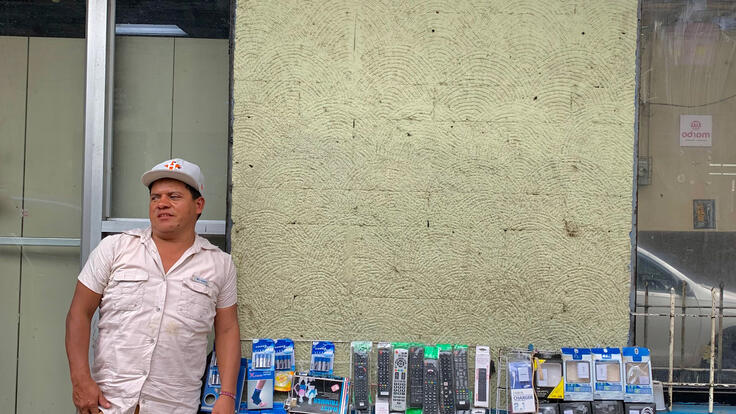
Dennis, a 41-year-old man from Honduras, faced diverse challenges as an LGBTQ+ person living with a disability. When he was just six months old, he started losing his eyesight and began treatment to avoid blindness.
Every morning, Dennis wakes up and commutes downtown where he sells electronics and other items, from remote controls and batteries to orthopedic supplies, on the streets. “Here, if you’re over 35, finding a job is difficult—and even more if you live with a disability,” he says. His earnings are the only source of income for his mother as well as himself.
With help from the IRC’s emergency cash relief program, however, Dennis was able to cover his basic needs and expand the range of merchandise he can offer to his clients.
“I had to think in a sustainable way [to use the cash support],” Dennis recalls. “What I did was to invest a part of it in merchandise, and that’s how I could strengthen my business.
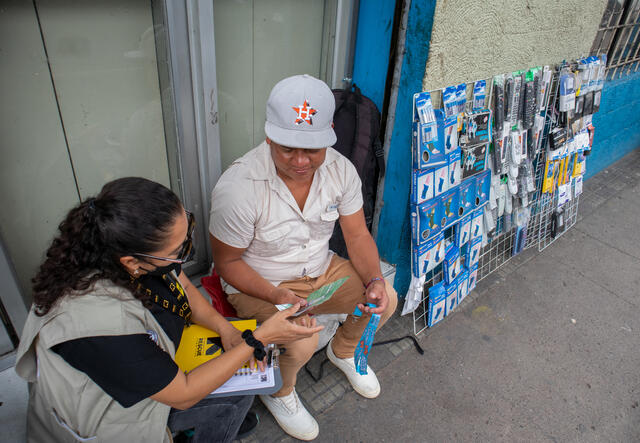
In addition to his work as a street vendor, Dennis has been a long-standing activist within the LGBTQ+ community in his city. For over 20 years, he has been an active volunteer at Asociación Colectivo Violeta, an IRC partner organization dedicated to advocacy and promoting human rights for the LGBTQ+ community in Honduras.
Being an activist somewhere so dangerous is extremely risky. While researching the risks facing sex workers within the LGBTQ+ community, Dennis was attacked. He survived the attempted murder.
Despite these relentless challenges, Dennis has hopes and dreams for the future. “I wish to be healthy so I can receive a corneal transplant,” he says. “I want to keep working, to build a more solid business and develop a personal project dedicated to people with disabilities in Honduras."
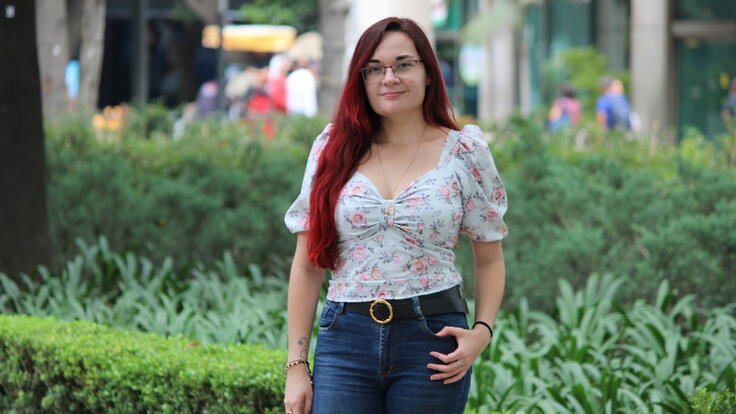
Lorayne was raised in a small town in the Santander region of Colombia, where, as she says, “people live well but [are] tied to very conservative norms.” As a member of the LGBTQ+ community, she experienced prejudice and felt unsafe.
“I love being in Colombia and I love my people, but I no longer wanted to continue living like that, with that fear.”
Then Lorayne met someone on the internet. Their relationship blossomed. They took turns visiting each other on brief trips, saving for months to afford the travel.
After two years of a long-distance relationship, the couple decided to move to Mexico. “Because of this, we were able to get married,” Loryane explains.
Moving from a small town to Mexico City was a huge change for Lorayne, and she found it difficult to find work. Eventually, she was hired as a graphic design assistant, setting in motion more ambitious career goals: during the pandemic, she and her wife started a business delivering gift boxes to people’s homes.
“I have always dreamed of having something of my own from a very young age,” Lorayne says. “I have had many ideas, but I was never allowed to develop them because of the circumstances I have gone through.”
When she learned about Resilient Futures, an IRC and Citi Foundation program that supports refugees, asylum seekers and migrants in Mexico, Lorayne enrolled to receive training, mentorship, and financial support, all of which allowed her to invest in her company and execute her business plan.
Six years have passed since Lorayne first moved to Mexico City—the difference is remarkable. Fully settled in her new home, she hopes to continue growing her business and explore new entrepreneurial ideas.
The IRC is proud to support LGBTQ+ communities around the world and fight for their rights. Across Latin America, our programs serve individuals and families who have experienced violence and displacement, providing emergency and long-term cash assistance to support business plans and future dreams. In addition to this, we provide access to safe spaces (where people can find services such as psychosocial support and legal orientation), youth support, digital information services and security kits.